If you’ve ever looked for travel information online, you’ve no doubt stumbled upon Matt Kepnes’ travel blog. He’s been blogging for quite a few years — in fact, I remember his site was a big source of inspiration for me back when I first started travelling back in 2012.
I recently had the chance to ask Matt a few questions about his ten years of living the nomad life, as well as his latest book.
Hi Matt! Many travelers surely already know you, but for those who don’t, can you introduce yourself and what you do?
My name is Matt Kepnes and I share my budget travel advice at nomadicmatt.com. It’s a blog that helps people travel cheaper and longer. I’ve been doing it since 2008.
In addition to running a blog and traveling, I teach a few online courses, co-own a hostel in Austin, Texas, organize an annual conference for people in the travel industry (called TravelCon), and I also have a charity called FLYTE that helps students in underserved communities experience transformative trips abroad.
How did your passion for travel originally get started?
Growing up in Boston, travel just wasn’t a huge part of my life. My family only ever went to see my grandmother in Florida or relatives in Philadelphia. We were never really a travel family. I didn’t even own a passport until I was twenty-three.
My first “real” trip abroad was a tour to Costa Rica back in 2004. That trip opened my eyes to all the amazing things that travel can offer. I loved the independence, the freedom, and the ability to do whatever I wanted. It was in sharp contrast to my routine back home.
The following year, I went on a vacation to Thailand. While I was there, I met some backpackers that long-term travel was possible. It was there that I decided to finish my graduate degree, quit my job, and travel the world. Originally, I was only going to go away for a year but here I am all these years later.
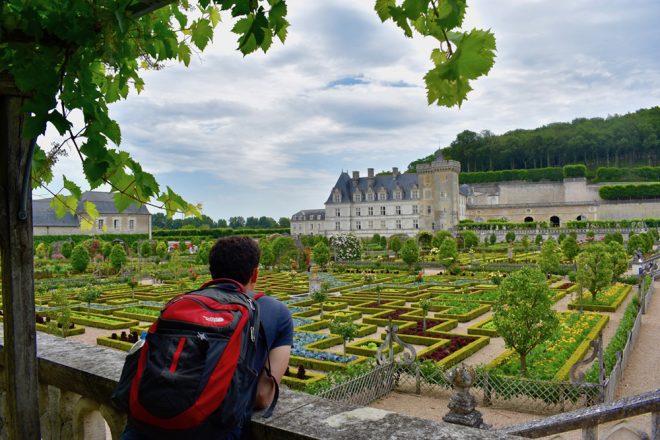
You’ve just written a new book – can you tell us what it’s about?
My new books is called Ten Years a Nomad. Unlike my book How to Travel the World on $50 a Day, this book is a memoir about my travels over the past decade. It’s not a “how to” budget travel book but rather a book about the why of travel. It also features lots of stories I’ve never told on the blog (including some embarrassing ones) and goes deeper into my philosophy on travel.
In short, Ten Years a Nomad traces the entire journey of a trip around the world: what happens when you get the travel bug, planning an adventure, quitting my job and setting off, the highs and the lows of life on the road, and what happens when you eventually have to come home.
At one point in your book, you talk about solo travel as a way to become more confident and get out of your usual personality patterns. I recognize that from my own solo travels, too. Why do you think travel lets you do this more easily?
I don’t think it’s necessarily that travel makes it easier, but rather that travel forces you to solve the problem. On the road, there it’s adapt or die. You need to learn and grow and develop as a person on the road. You have to learn how to solve problems. You have to learn to talk to people. If you don’t put yourself out there, you’ll just end up miserable and on your way home. So I think the nature of travel forces you to get out of your comfort zone and, when you do that, you realize what you’re capable of, which in turn then makes you more outgoing, which then makes you try new things more often. It creates a positive feedback loop that is always leading you to bigger and better things.
In your 10+ years of travel, what have been the most memorable high points you ever experienced?
I’ve been to some amazing places over the years. Exploring Madagascar, living in Thailand, hiking in Patagonia, scuba diving in Fiji, traveling around Africa, being a poker player in Amsterdam – I mean there’s a lot over the course of ten years.
But I would say the stand out moment is still the month I spent on Ko Lipe in Thailand. I ended up being “stuck” there. It was just too good to leave. I had a great group of friends, it was cheap, relaxing, and just the perfect place. There was no reason to leave (at least until my visa was up and then I had to go). We spent the days swimming, lounging, drinking, and sharing great conversations.
Were there also any low points during which you questioned the lifestyle or path in life you’d chosen? How did you get through them?
There were lots of low points — especially when I first started out on my round-the-world trip. I’d get lost (there was no Wi-Fi or Google maps back then), I over packed and lugged too much around, but the most challenging thing was dealing with the loneliness. I am usually quite introverted, so it took me a while to get used to opening up and trying to meet people. I’ve been sick a number of times. I’ve been lonely in places where I wish I had friends.
But I think those are things that happen to anyone. There was no big moment on my trip where I felt so down I didn’t know what to do.
Ya know, when you’re traveling solo, you have to solve all your problems. That’s the best (and sometimes worst) thing about it. If you Travel is the best personal development tool in that regard: it challenges you to do better.
I can’t say I’ve regretted the path I am on ever.
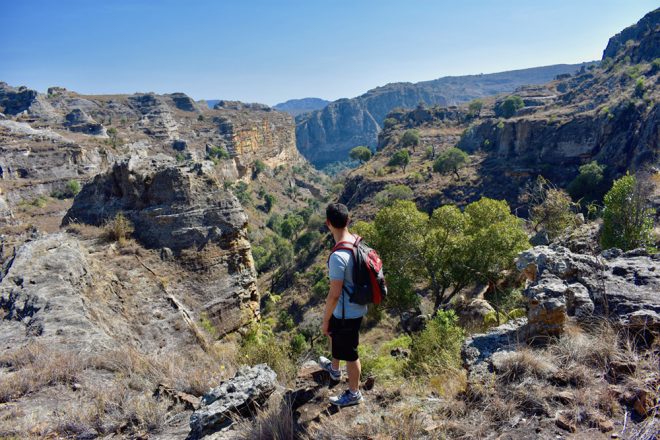
What are some of the top things you would say to someone who’s just starting out as a traveler?
There’s a lot to think about when you’re just starting out: finding the right flights, researching the best bag, buying travel insurance, figuring out what to pack and how to pack — it can be overwhelming at first. New travelers can easily get confused or frustrated with all the details. As a solo traveler, you have to figure all this out yourself. There’s no one to do it for you.
And that can be a bit overwhelming so some of things I’d say to someone who is just starting out are:
- Remember, you’re not Magellan. There’s a well worth travel trail and millions of people have done this before. The succeeded and you will too. You aren’t going anywhere someone hasn’t been before and, when you get there, there will be an infrastructure to help you out.
- Create a planning checklist to stay organized. This checklist will ensure you cover all your bases when you’re putting your trip together, which will also give you some added confidence and eliminate any anxiety about missing any important steps. It will help make you feel in control of your trip.
- Finally, if you can, join a travel community. Whether it’s online or in person, connecting with other travelers is a great way to get tips from experienced travelers and put your mind at ease. These are people who have been there and done that and can help reassure you as you plan your trip.
What types of places do you most like to visit — and has this changed over the years?
I’ll visit anywhere. I love cities as much as I love nature. I’ve learned over the years I don’t like camping so I’d rather go “glamping” or do day hikes around. I think living in cities for so long as made me more prone to just love cities. I like the opportunities and variety that big cities offer. That doesn’t mean I skip small towns, but rather I feel more at home in the larger cities of the world.
But there’s no place or terrain I won’t visit!
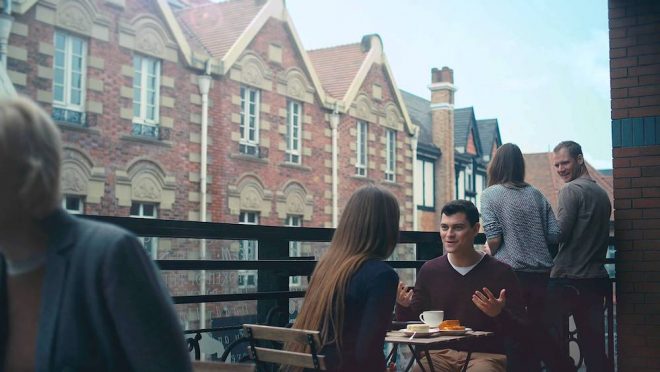
When were you most surprised by the kindness of strangers on a trip?
People are generally good. They want to help you. They want you to have a wonderful time in their home. So if you give people the opportunity to help you, they will. One time I was in the West Fjords, which is the most isolated region of the country and doesn’t see nearly as many visitors as the South and East of the country. After a long while of sitting by the road, a man passed and pulled over. He didn’t speak much English, but he was kind enough to give me a ride. We tried to communicate as best as we could and he pointed out landmarks and other cool sights as he drove me to where I was heading.
That always reminds me that the human condition transcends language.
You’ve been a travel blogger for longer than most of us have. How is blogging different today from when you started over 10 years ago?
Blogging is a completely different industry now. Back in the day, I had an ugly website and just wrote about whatever I wanted to write about. No SEO. No sleek social media.
These days, blogging is a legitimate profession so, naturally, it takes more work. You need to wear a lot of hats as a blogger and you need to learn the right skills to succeed. You need to be a competent writer and marketer, you need to learn SEO and social media management, you need to learn HTML and design too.
Blogging is a lot more work than most people think. We’re not all lounging by the pool or relaxing at the beach. We’re usually hunched over a laptop for hours (or days!) at a time. It’s not nearly as glamorous as social media makes it look like. But it does offer freedom if you’re willing to put in the work and learn what it takes to succeed.
You’ve written a lot on your blog about wanting to have a more settled life, but you often seem to get the itch to travel again. I’m curious if you think there’s a middle ground or have-your-cake-and-it scenario. Can you be semi-settled and semi-nomad at the same time?
I think that’s definitely possible. I’ve been trying to have a home base for years, and I’ve been relatively successful. I think it really comes down to how you define those terms. For me, settling down is about spending more time at home than abroad and I want to keep my trips to about a month at a time. That’s semi-nomadic for me. It’s not about escaping quickly, it’s still about taking long trips – but just less often.
How can someone bring the traveler’s mindset home — and live a traveler’s life but in your own city or region?
I think the key to bringing that mindset home is to embrace your curiosity. We tend to go to the same restaurants, drive the same roads, and go to the same bars when we’re at home. We have a routine — and that’s perfectly ok. We like what we like.
But travel is about mixing things up. It’s about new experiences. The best way to bring that attitude with you is to start changing things up at home. Try new restaurants and new foods. Take a different bus or subway to work. Walk home via a different route. Host Couchsurfers or attend travel meet-ups. Visit a nearby town on the weekend for a day trip.
More often than not, we explore the world before we explore our own backyard. Yet there are so many amazing things to see and do back home. You just need to be willing to put in the time and energy to find them!
Where are you now and what’s next for you?
For the next few weeks I’ll be bouncing around the US and Canada to promote my new book. I’ll be hosting readings and signings in cities all around the continent (so be sure to come say hi if you’re nearby!)
After that, I’ll likely head to Europe…but nothing is set in stone yet. That’s why I love this job: the freedom to go where you want, when you want. If you ask me, there’s nothing greater than that.
Some links may be affiliate links, meaning I may earn commission from products or services I recommend. For more, see site policies.
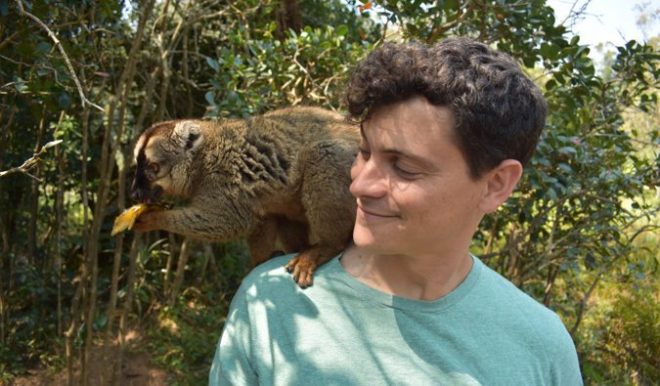
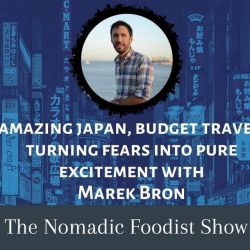

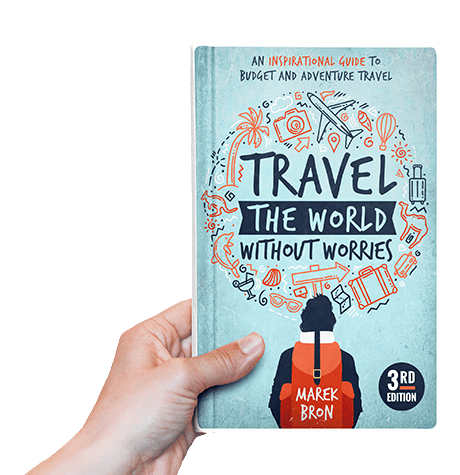



0 comments
Leave a comment
Your email address will not be published. Comments are manually moderated.